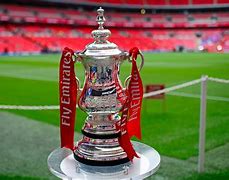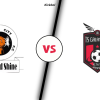EFL Cup: A Showcase of Premier League’s Rising Stars
The EFL Cup, also known as the English Football League Cup or simply the League Cup, is an annual knockout football competition operating in England. This competition provides an opportunity for rising stars in the Premier League to showcase their skills and make a name for themselves.
Comparison with Other Leagues
| League | Country | Number of Teams | Prestige |
|---|---|---|---|
| Premier League | England | 20 | High |
| La Liga | Spain | 20 | High |
| Bundesliga | Germany | 18 | High |
| Serie A | Italy | 20 | High |
| Ligue 1 | France | 20 | High |
Biggest and Most Successful Teams
In the history of the EFL Cup, several teams have emerged as the biggest and most successful clubs:
-
- Manchester United: With five titles, Manchester United is the most successful team in the history of the EFL Cup. Their victories came in 1992, 2006, 2009, 2010, and 2017.
-
- Liverpool: Liverpool has won the EFL Cup eight times, with their most recent triumph taking place in 2020.
-
- Chelsea: Another dominant force in English football, Chelsea has lifted the trophy on five occasions, with their most recent win being in 2015.
-
- Manchester City: As one of the top teams in the Premier League, Manchester City has claimed the EFL Cup six times, including three consecutive victories from 2018 to 2020.
FAQs
1. How many teams compete in the EFL Cup?
The EFL Cup features a total of 92 teams from the top four English divisions. This includes all 20 Premier League teams, as well as 24 from the Championship, and so on.
2. When is the EFL Cup final played?
The EFL Cup final is typically held in late February or early March. The exact date varies each year.
3. Can teams from lower divisions win the EFL Cup?
Yes, teams from lower divisions have the opportunity to compete against Premier League sides in the EFL Cup. In fact, some underdogs have caused major upsets and gone on to win the tournament.
Conclusion
The EFL Cup serves as an exciting platform for budding talents to prove their mettle on a larger stage. With the participation of Premier League clubs and the chance for lower division teams to make a mark, this competition adds great value and entertainment to English football. It has become a stepping stone for young players to put themselves in the spotlight and attract attention from clubs across Europe.










